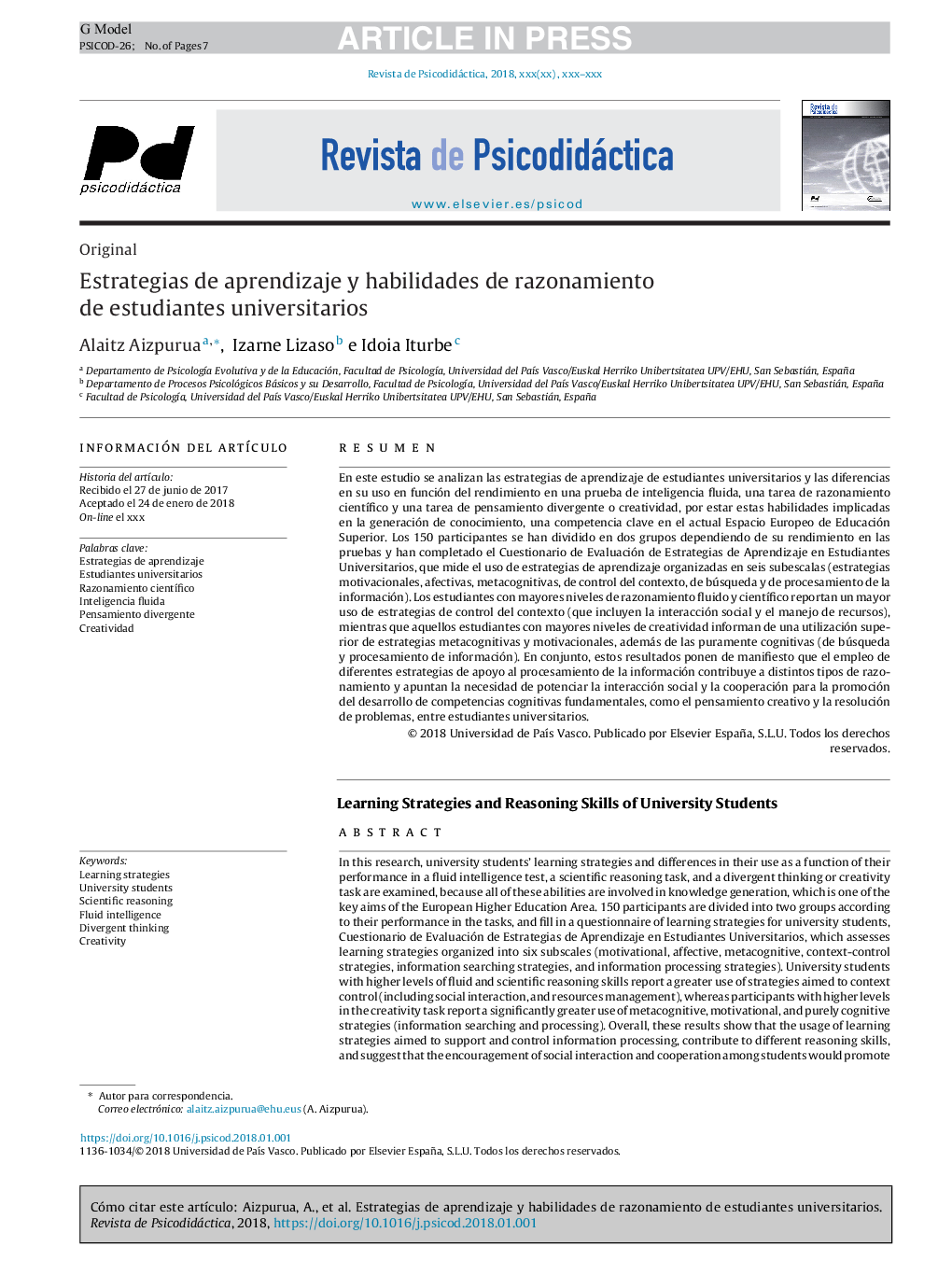ترجمه فارسی عنوان مقاله
استراتژی های یادگیری و مهارت های استدلال دانشجویان
عنوان انگلیسی
Estrategias de aprendizaje y habilidades de razonamiento de estudiantes universitarios
| کد مقاله | سال انتشار | تعداد صفحات مقاله انگلیسی |
|---|---|---|
| 134136 | 2018 | 7 صفحه PDF |
منبع

Publisher : Elsevier - Science Direct (الزویر - ساینس دایرکت)
Journal : Revista de Psicodidáctica, Available online 9 March 2018
ترجمه کلمات کلیدی
استراتژی های یادگیری، دانشجویان دانشگاه، استدلال علمی، هوش مایع تفکر واگرا، خلاقیت استراتژی های یادگیری، دانشجویان دانشگاه، استدلال علمی، هوش مایع تفکر واگرا، خلاقیت،
کلمات کلیدی انگلیسی
Estrategias de aprendizaje; Estudiantes universitarios; Razonamiento cientÃfico; Inteligencia fluida; Pensamiento divergente; Creatividad; Learning strategies; University students; Scientific reasoning; Fluid intelligence; Divergent thinking; Creativity;

